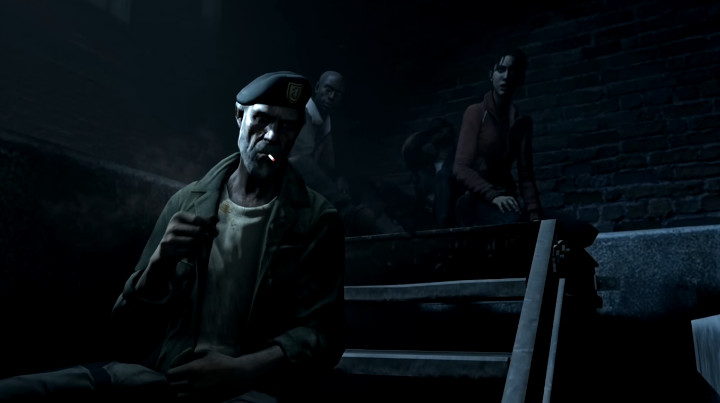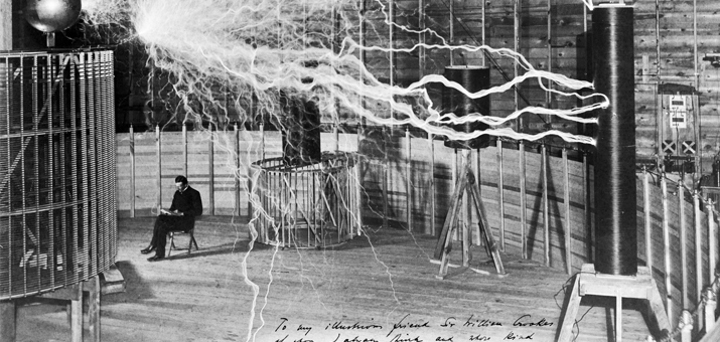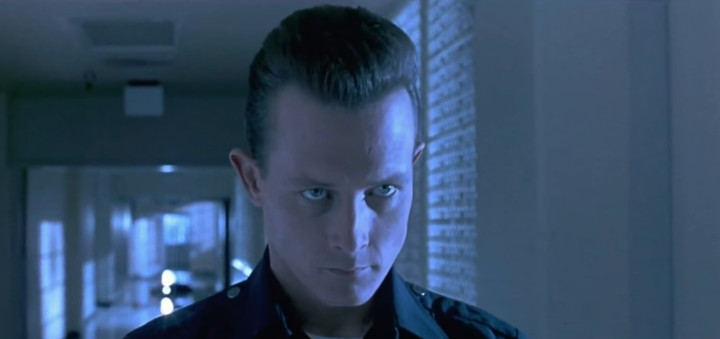
This article began with the question: “Have we already reached the Technological Singularity?”
I’d originally intended to use the Director from the classic zombie video game Left 4 Dead to make my argument. The Director, you see, is a part of the game’s artificial intelligence that adapts the game’s environment to the player so that no two games are ever exactly the same. Simply put, the Director instructs the game to spawn enemies, weapons, and health items at different locations depending on how well or poorly the player is performing.
My initial argument was this:
If the Director from Left 4 Dead was given the ability to update itself, then that means we would have already begun our approach toward the Technological Singularity, because here we have an artificial intelligence that adapts to unpredictable input. However, computer viruses exist that already do that. Therefore, we have passed the Technological Singularity.
But I was wrong because I didn’t understand what the Technological Singularity actually is.
Which I think is interesting — not because I was wrong, but because of the reason why I was wrong: I was operating under the assumption that all science fiction is well-researched and essentially based on real-world science. I thought that was what set it apart from other genres of fiction.

I think that “tech-fiction” would be a more appropriate term for certain types of science fiction that don’t even bother getting the science right (i.e Steampunk, Transhumanism, etc.)
In other words, if an author doesn’t stick to the scientific theories and principles of their time and then use those natural laws as in-universe lore in their stories, then how is it essentially any different from any other form of fiction beyond stylistic choice?
I find it a curious piece of trivia that Edgar Allan Poe, the famous American Gothic writer, wrote what’s considered to be the very first detective story in print, “The Murders in the Rue Morgue.” However, he didn’t invent the word detective. The first fiction author to use that word in print was, in fact, Charles Dickens, approximately ten years after Poe’s story.
I’m about to talk about how “The Murders in the Rue Morgue” are committed, and in doing so, I’m going to give away the ending. If you’d like to read it first for yourself and try and solve it, you can read it here, but fair warning: It’s not an easy read by modern standards, and you most likely won’t be able to solve the mystery because it doesn’t play fair like a good detective story should.
Poe called the process of detective work ratiocination. This word comes from the Latin word ratiocinari, which literally means to reason.
By the process of reasoning (i.e. logical deduction), Poe’s character was able to work out that the murders were committed by a visiting sailor’s errant pet orangutan.
I think you’ll agree this is both ridiculous and wonderful.

The protagonist, C. Auguste Dupin, uses the same deductive reasoning techniques as more famous fictional detectives, such as Sherlock Holmes or Batman (“The World’s Greatest Detective”). These reasoning techniques are based, at least loosely, on contemporary real-world science.
So is “The Murders in the Rue Morgue” actually a science fiction story?
Consider this: If magic is merely technology we don’t yet understand, then isn’t the fantasy genre also a form of science fiction, however accidentally?

Realizing that I didn’t actually know what the term Technological Singularity meant, I looked into it. What I found was a confusing mess of definitions, which made obvious my first mistake.
It’s not the Technological Singularity, because there isn’t just one possible Technological Singularity. It could be anything.
The word singularity essentially means unique event. Therefore, a Technological Singularity is simply “a unique event that involves or is caused by technology.”
But what do we mean by “unique event?”
The word singularity was first used in a technological context by computer scientist John von Neumann in the 1950s:
The accelerating progress of technology and changes in the mode of human life give the appearance of approaching some essential singularity in the history of the race beyond which human affairs, as we know them, can not continue.
So, in simple terms, the Technological Singularity is the exact moment when technology progresses so much (or in a way) that we cannot accurately predict what will happen to human society after that point in time.
It’s that awkward moment when a total game-changing app or piece of tech appears, and, in slang terms, “it memes the human race so hard in real life that we just can’t even because literally what even is this.”

Let’s look at a common example of a Technological Singularity, which we’ll call the “technological advance.”
You create a computer A.I. app (which we will lazily name “A.I. Version 1”) over the space of a month. Everyone loves it and buys it. In order to remain ahead of your competitors, you make the A.I. routine twice as powerful next time, and you do it in half the time. So, A.I. Version 2 takes you 2 weeks time. A.I. Version 3, only takes 1 week.
But by this time, you’ve realized that you can automate the process of upgrading the program each time so you don’t have to do it yourself.
So, you create the desired algorithm, update your program with this new algorithm, and just sit back and let the A.I. upgrade itself.
A.I. Version 4: four days (rounding up for ease of estimation).
A.I. Version 5: two days.
A.I. Version 6: one day.
Half a day.
Eventually, an hour.
Half an hour.
Minutes.
Seconds.
Thousands of a second.
Millionths of a second.
And so on.
This becomes an A.I. that upgrades itself exponentially, in perpetuity. Can you, in good conscience, say that you can realistically and accurately predict how that would affect human society? Can you even imagine it?
One common belief is that an A.I. of this nature would develop sentience. That’s the base idea behind science fiction films like The Matrix and Terminator, and even, to some extent, Her.

But self-aware A.I. is only one example of a possible Technological Singularity. Let’s look at an example that doesn’t involve A.I.; let’s call it the “unpredictable social event.”
Imagine you were able to upload somebody’s mind into a computer, thereby creating a hypothetical form of immortality.
We can safely assume the cost of uploading your mind would be astronomical until the technology became more common. Socially, maybe there wouldn’t be much difference — many of us already speak to people more through social media than in real life. Your friends would still post on Facebook; you just wouldn’t be able to ever visit them in person since they wouldn’t have physical bodies.
But eventually, someone would figure out how to create robotic bodies. Our feelings about our own mortality would change. Euthanasia would cease to be an issue. War would be completely different, if it existed at all.

Now, let’s imagine you could hack somebody’s mind and capture it. Now you’ve got cyber-slavery, black market minds, and a whole slew of junk that sounds like it was ripped from the pages of a William Gibson novel.
Now, what if something went wrong in that tech, and half the planet was mind-swapped with animals? And not just the cute and cuddly ones, but also unpopular animals like rats and insects and other vermin.
What would that do to society? We have no real frame of reference, because we don’t understand animal intelligence as much as we pretend to.
- To what degree are animals sentient?
- Would they be able to speak if given human bodies?
- Would they share the memories of their host body?
- Would animals hold a grudge due to their treatment at human hands?
- Would animals want to try working within our legal framework to make meat illegal to eat?
- Would we let them?
- Should we let them?
And so on. I could continue like this for hundreds of pages. Each question seems to create even more questions because there’s no frame of reference. And because there’s no frame of reference, we have no way of even imagining what it would be like.
Except, that’s not strictly true, is it? We can’t accurately or realistically predict it, but we can imagine it.

And we can make up stories in our head and share them with others, through fiction.
And when we examine scientific ideas in fiction — not just those based on already-understood principles or laws, but also new scientific ideas — then that’s science fiction.
So, as I mentioned near the beginning of this article, I was wrong about what science fiction actually is. Because, much like science itself, it’s not only about understanding natural laws and applying them; it’s also about exploration and finding new natural laws to understand.
So, Left 4 Dead‘s Director A.I. isn’t the Technological Singularity I had understood it to be. Perhaps it could — in theory, mind you — apply patches to its own software, but that doesn’t mean we’ll inevitably invent an A.I. feedback loop similar the one in the “technological advance” example.

My idea was based on a flawed understanding of science.
It was science fiction — not actual science — that caused me to think about the Technological Singularity, and then decide to try to write and article on it. At some point in that process, I was forced to learn about the actual science and its terminology.
Earlier, I asked you to consider that fantasy was a form of science fiction. Now, I ask you to consider that science fiction might also be a genre of fantasy.
Because that’s what science fiction is for: To remind us that magic is science, and science is magic.
And this reminds me of a very important truth:
“Life may not always be fun, but it is always full of wonder — even if you have to look for the wonder sometimes.”
